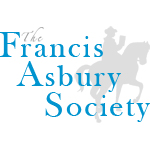scripture reading: Romans 6:15–23
Free Indeed!
Truly, truly, I say to you, everyone who commits sin is a slave to sin . . . So if the Son sets you free, you will be free indeed.” (John 8:34–36)
The growing number of addictions plaguing people today is one of the most tragic characteristics of our culture. Whether we are talking about an unhealthy attachment to a substance (alcohol, nicotine, heroin, caffeine, etc.) or to a behavior (eating, pornography, exercise, video games, gambling, shopping, etc.), addictions make slaves of those held in their grip. Whether the bondage is to a slimy vice like voyeurism or a respectable activity like eating chocolate, the addict is one who is trapped in a lifestyle that is progressively harmful and can’t seem to do anything about it.
In his book Not the Way It’s Supposed to Be: A Breviary of Sin, Cornelius Plantinga examines the relationship between addiction and sin. Though one must be careful in simply equating the two, few would deny that the two realities represent two circles with a large area of overlap. In outlining eight “Dynamics of Addiction,” Plantinga helps a person to better understand whether or not he is a slave of sin.
,. You repeat the habit-forming behavior to obtain pleasure and have an escalating tolerance and desire.
,. You have unpleasant after-effects from engaging in the behavior such as withdrawal symptoms and self-reproach.
,. You make vows to moderate or quit the activity, followed by relapses and attendant feelings of guilt, shame and general distress.
,. You attempt to ease this distress with new rounds of the addictive behavior, or in some cases with the first rounds of a companion addiction.
,. The behavior causes a deterioration of work and relationships, with accompanying cognitive disturbances, including denial, delusions, and
self-deceptions, especially about the effects of the addiction and the degree to which you are enthralled by it.
,. You find yourself increasingly preoccupied, then obsessed by the behavior.
,. The behavior becomes compulsive so that your will becomes at least partly split, enfeebled, and enslaved.
,. You discover a tendency to draw others into the web of your addiction . . . people who support and enable the primary addiction (p. 145).
Seen in these terms, a full blown addiction is a pretty accurate description of what the Bible calls idolatry. Plantinga writes, “At last, the addict will do anything for his idol, including dying for it.”
More important than accurately defining the subtle distinctions between sin and addiction is the reminder that Jesus Christ is the Liberator who came to set us free for every destructive form of bondage. The freedom he brings is not the right to do what we want but the power to do what we ought! The first step to freedom is finding the courage to admit the truth of our bondage! If you abide in my word, you are truly my disciples, and you will know the truth, and the truth will set you free (John 8:31–32).
Spiritually, addiction is a deep-seated form of idolatry. The objects of our addictions become our false gods. These are what we worship, what we attend to, where we give our time and energy . . . Addiction, then, displaces and supplants God’s love as the source and object of our deepest true desire. —Gerald May
point to ponder • Freedom is not the right to do what I want but the power to do what I ought.
prayer focus • Those struggling with addictive behaviors.
